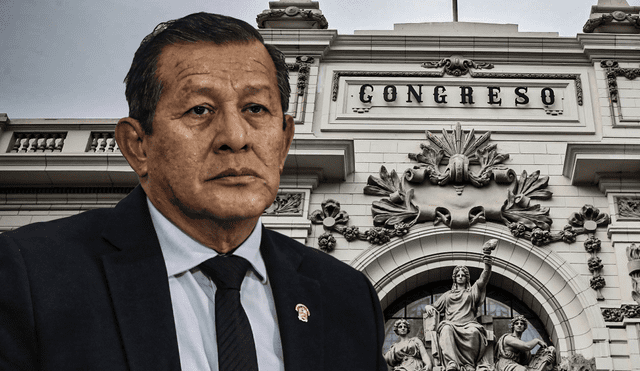Because Dina Boluarte’s government washed its hands of presenting observations, the president of Congress, Eduardo Salhuana, promulgated the law on the rules for electing the bicameral Congress in the 2026 general elections. This rule, in addition, would cause an increase the number of parliamentarians, at least, to 237 for the 2031 elections.
The law says that the bicameral Congress will have 130 deputies and 60 senators, but below it states that the National Elections Jury (JNE) will establish that there is one representative for every 160 thousand voters in our country.
In practice this increases the number of congressmen. In the 2022 regional and municipal elections, there were 24.7 million voters. Taking that figure as a reference, there would be 158 deputies and 79 senators.
When that part was discussed in the Constitution Commission of Congress, the president of this group, the Fujimori Fernando Rospigliosi, said that this change would apply from the year 2031.
And in fact, the law says in one of its final provisions that the part referring to there being one congressman for every 160 thousand voters will apply after the 2026 general elections are over.
YOU CAN SEE: Jorge Torres Saravia: César Acuña signed a certificate with which he applied to work in Congress
The enactment of this law occurs in a context in which Congress seeks to go all out to adapt its facilities to the bicameral system, without measuring the use of public resources. The reform of the system with a double parliamentary chamber has a limit. Congress can only use a maximum of 0.6% of the national budget and for this year, however, its resources reach 0.56%, still operating with unicamerality.
With 237 parliamentarians, it is imminent that this institution will require more public resources, due to the number of advisors it requires, offices, offices and other requirements.
That ruling was engineered by the Constitution Commission, chaired by Fujimori’s Fernando Rospigliosi, and had the support of his allies from Alianza Para el Progreso (APP), Perú Libre and its other satellite groups.
YOU CAN SEE: Keiko Fujimori: sanctioning process opened against Fuerza Popular after trip to the US with State money
Make the electoral fence more flexible for alliances in the 2026 elections
The law also establishes an electoral barrier of 6% for alliances in the 2026 elections, regardless of the number of political parties that make it up. The argument for approving this modification was that, due to the proliferation of political groups registered for the general elections, it is necessary that there be coalitions that allow a better offer.
A group that promoted this rule was Avanza País, with congressmen Adriana Tudela and Alejandro Cavero.
When the president of the National Election Jury (JNE) was Judge Jorge Luis Salas Arenas, he observed the proposal because he considered that it would cause political parties with little representation to reach Congress. However, Rospigliosi’s commission ignored the questions and continued with its initiative.
Congress against the clock and regional movements
Electoral rules can still be modified. Congress has a deadline to change them until April, the month in which President Dina Boluarte is obliged to call the process for the 2026 general elections.
A rule that is of interest to the coalition that governs Parliament is the one that allows current congressmen to apply to be governors or mayors in the 2026 regional and municipal elections.
This proposal also eliminates regional movements.
The problem for the Fuerza Popular – APP – Perú Libre coalition is that it does not have the 87 votes to ratify the approval of this law. In the middle of last year, the initiative received the green light in the Plenary, but when it was going to be put to a second vote in December, it did not have two-thirds in favor.















